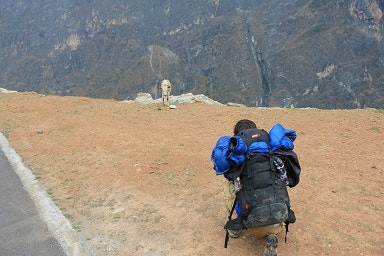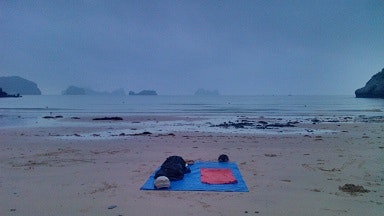Backpacking
A comprehensive minimalist guide on adventurous travel to help you get started on the right foot
Pack light and you will thank me later - around 12 kg or less. You don't need a guidebook but you do need information. Reliable information can be found on wikitravel.org country and city pages. There are often more accurate and up-to-date information on the English version (e.g. Cairo Egypt). For more country or area specific information, check the country summaries at Travel Independent, the Rough Guide or simply Google. As for planning in advance or not, I think it's more a question of how you like to do it. I read in advance but I don't plan because I like my itinerary to unfold bit by bit. Another great way to get information is to talk with the locals. However be aware that what they will call amazing or must-go might be nothing special sometimes. Also keep in mind that locals often don't know too much about their own country as they don't get a chance to travel around that much. In the same way that I wouldn't be a good advice giver to someone wanting to visit Switzerland.
On accommodation, if you travel alone, dormitories are a great way to meet people and save money. Booking.com, Hostelworld and other website can be helpful to find a good place. Most of the time, there is no need to book in advance except if you find yourself in the middle of a local holiday. Couchsurfing is an amazing way to meet with locals and feel more integrated into the culture of the country - as a bonus, it will help you save money. Airbnb might be useful if you're looking for an apartment with kitchen for example.
Overland travel is one of the best ways to travel. In some parts of the world, crossing a border on foot is an unforgettable adventure. If you don't know anything about borders, you can represent it to yourself by two lines that you have to cross separated by what we call a no man's land (the portion of land that doesn't belong to neither of the two bordering countries). The first "line" is in reality a passport control checkpoint where you will get your passport stamped to acknowledge that you are exiting the country. Then the no man's land can be anything from 50m to 6km depending on the place. After you cross it, you will get to the second passport control checkpoint where your passport will get stamp for entry in the new country. I might talk about Visas on another page of the website but if you go to Central Asia, remember Caravanistan is your best friend!

